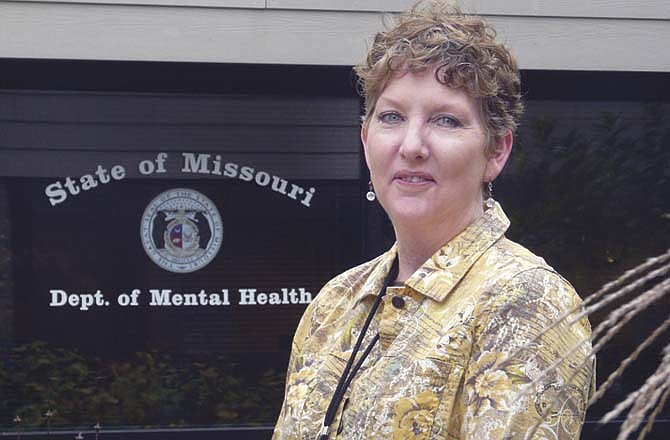As the Department of Mental Health's director of children's clinical services, Patsy Carter knows kids must form strong and caring bonds with their caretakers in order to thrive in this world.
"It's very important to have adaptive, healthy relationships," she said, noting such attachments are "one of the strongest protective factors" humans have.
Carter started working for the Missouri Department of Mental Health 25 years ago as a psychologist. Although she spent a few short months working with adults, her career has focused on children.
"I have a passion for helping the kids," she said.
She worked in both inpatient and outpatient settings and at various state mental health facilities. About 15 years ago, she transferred to the department's central office.
Today, her work focuses on two primary areas: "early childhood," where she works to promote the social, emotional and physical health of small children, and "trauma," where her group works to increase understanding of the toll traumatic life events take on a person's mental health.
Much of Carter's work is focused on raising awareness of children's mental health concerns. A goal of Clark's work is to increase access to mental health services for kids younger than age 6.
She said a variety of governmental agencies - in social services, health and education - at all levels form a network to help children.
"I'd like to work to embed mental health in the natural environments children are already in," Clark said.
Although disorders like schizophrenia and bipolar are exceedingly rare in children, other concerns aren't unusual. "People do need to recognize that very young children can feel depressed or anxious," she said.
She noted traumatic events - such as abuse, neglect, domestic violence, death, car accidents, or witnessing criminal behavior - also put children at risk. A major study undertaken about 25 years ago found that those who suffered trauma as children are more likely to be homeless or have health problems later in life.
"Research show that untreated trauma has a lifelong impact," Carter said.
Part of Carter's job is to make sure the entire governmental system is "trauma informed," meaning that workers who encounter troubled people know how to deal with them appropriately.
"If you are "trauma-informed,' you know how to respond so that you aren't re-traumatizing them again," Carter explained.
As part of her job, Carter also serves as a certified forensic examiner, a role that requires her to determine if adolescents are competent to stand trial.
In her private life, Carter is a baseball fan - she roots for the St. Louis Cardinals' catcher Yadier Molina - and she's actually a bit of a homebody, she said.
She also adores her canine friends.
"I even make them homemade, decorated doggie treats," she said, noting it keeps her from baking - and gaining - too much.

